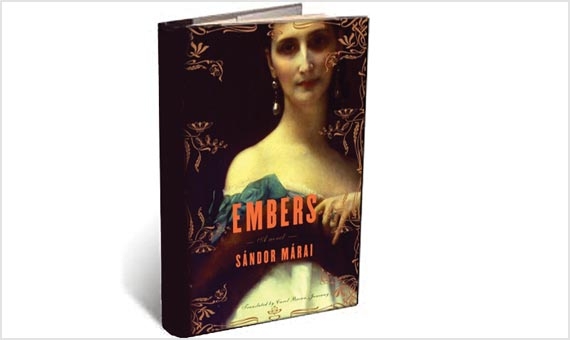
Hendrik was out most evenings, wining and dining and womanising. When they became young officers, they shared a flat. The relationship steadily deepened, and also became more hermetic. When the friendship was four years old, the boys began to shut themselves off from other people and to have their own secrets. Konrad was very enthusiastic about music – he was related to Chopin – and Hendrik was not. Indeed, they were were very poor and had given up everything for their son. Hendrik’s family were well-off, Konrad’s were not. The two became fast friends, despite one obvious difference. When he was ten, his father enrolled him the officer training academy in Vienna. Of course, nobody uttered a word about the cause of the child’s illness, but everybody knew: the boy needed love.

Nini was summoned from Hungary and took four days to arrive.

When he was a bit older, his mother took him to France to meet her relatives. Seventy-five years later, a sprightly ninety-one, she is still serving Hendrik. She went to the castle, where she became Hendrik’s wet nurse. She got pregnant but refused to tell her father who the father was. When he was born, there was a sixteen-year old woman, Nini, living in the village. They married and returned to the castle in Hungary. His father was a Hungarian officer when he met his future wife, a French countess, in Paris. Indeed, World war II, Hitler, Horthy and the Nazis do not get mentioned in this book. Hungary was not involved in the war till June 1941. His wife is long since dead and he has no children. The General – we later learn that his name is Hendrik, though we do not learn his surname – is living alone in his ample castle, with only his servants.

Home » Hungary » Sándor Márai » A gyertyák csonkig égnek (Embers) Sándor Márai: A gyertyák csonkig égnek (Embers)


 0 kommentar(er)
0 kommentar(er)
